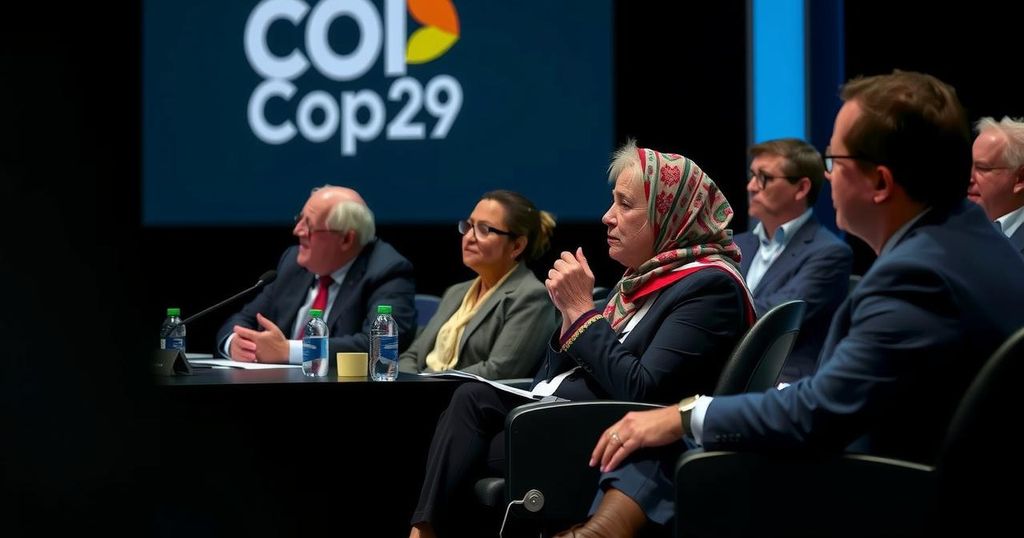COP 29 in Baku focuses on creating a new climate finance agreement, the New Collective Quantified Goal (NCQG), in response to escalating climate disasters. The need for increasing annual contributions from developed nations, enhancing trust, and addressing the large financial requirements of developing nations is critical. Developed countries must prioritize grant-based support over loans to ensure climate justice and equitable financing for the most vulnerable communities.
The ongoing COP 29 negotiations in Baku necessitate a shift in focus from profits to prioritizing human lives in the context of climate finance. The tragic consequences of recent natural disasters, including fatalities in Spain due to devastating floods, stress the urgent need for an ambitious climate finance deal. The aim is to significantly increase the funds mobilized under the New Collective Quantified Goal (NCQG), transitioning from merely meeting previous commitments to addressing the overwhelming financial requirements projected at trillions of dollars for developing nations by 2030. Despite two years of discussions, there remains a lack of consensus on how to effectively mobilize resources for the NCQG. While developing countries have presented solid proposals for the new climate finance structure, developed nations continue to delay meaningful action, jeopardizing trust in the climate agreement frameworks. This scenario is compounded by the inclination of wealthier countries to shift responsibilities onto emerging economies, undermining commitments made to support climate action in less affluent nations. Furthermore, there is a disturbing trend among developed nations to expect private sector participation and debt financing to fulfil the climate finance needs. This approach neglects critical aspects of climate adaptation that are not financially viable, which led economist Daniela Gabor to label it as the “Wall Street Climate Consensus.” Allowing financial institutions to dictate the terms of climate finance could exacerbate inequities, placing the burden on the most vulnerable populations while prioritizing profit motives. To rectify the shortcomings of current climate financing, it is crucial that developed nations provide significant, grant-based financial support rather than loans that worsen existing debt crises in developing nations. As the world closely observes the proceedings in Baku, it is imperative for the powerful economies to honor their commitments to fund climate action that genuinely reflects a prioritization of human welfare over commercial interests. The repercussions of this summit will be felt for years to come, shaping the global response to climate crises faced by the most affected communities.
The COP 29 meeting in Baku, Azerbaijan, brings together global leaders to negotiate new climate finance agreements, particularly the New Collective Quantified Goal (NCQG), which aims to replace previous funding commitments. Previous agreements have fallen short, and recent disasters highlight the urgent funding needs for developing countries facing increasing climate-related threats. This context underscores the necessity for rich nations to enhance financial support whilst shifting away from profit-centric funding mechanisms, ensuring a focus on climate justice and equity in finance distribution.
In conclusion, the COP 29 proceedings demand a pivotal shift towards a climate financing strategy that emphasizes human lives over profits. With catastrophic climate events affecting vulnerable populations, it is essential for developed nations to mobilize meaningful, grant-based financial resources to support adaptation and resilience efforts in developing countries. The future of climate cooperation hinges on the commitments made in Baku, and a failure to act decisively could undermine global climate action and worsen inequalities.
Original Source: www.aljazeera.com







